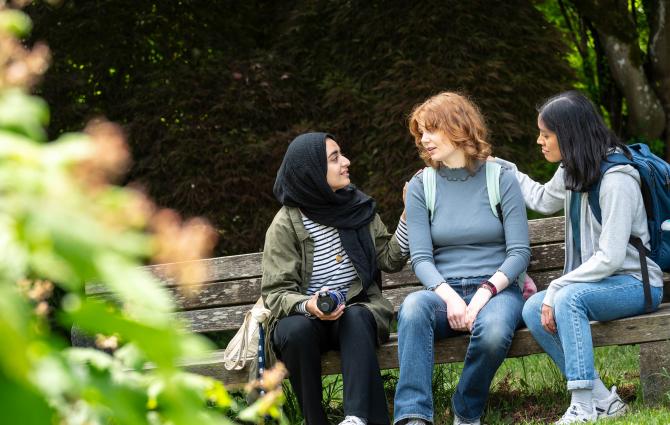Recently, I had a conversation with a friend in which she complained that a member of her project group wasn’t on Facebook. “If you’re not on Facebook,” she said, completely deadpan, “do you even exist?”
More and more, that seems to be the lens through which we view our lives. Our generation is the first to have grown up with social media, and it’s had a very real effect on how we live.
A quick scroll through my Instagram feed right now turns up a high school friend’s travel pics, a lifestyle blogger’s beautifully arranged breakfast, a classmate’s early morning gym selfie, and an artsy “candid” shot from someone’s night out. This morning, I slept through my alarm and scrambled to get ready while chugging coffee and shoving a granola bar in my mouth. No breakfast aesthetic, no productivity or adventure in sight.
Like most 20-somethings, I usually spend my time on the bus checking social media. After my disaster of a morning, it was hard not to spend my commute looking at my feed and thinking, “Why doesn’t my life look like this? Why don’t I have it together?”
On the other hand, my own Instagram profile doesn’t betray any evidence of my tendency to oversleep or the 10 minutes I spend looking for my keys every morning. It’s the same parade of travel shots, summer selfies, and aesthetically pleasing bowls of oatmeal, just like everyone else. We don’t post our troubles or anxieties on social media. If we do, they’re heavily edited (I’m looking at you, #nomakeupmonday) and accompanied by positive, encouraging captions.
Social media, in other words, is only part of the picture. It’s highly curated, an elevated reality where everyone’s desk is arranged neatly and you’re always “on a fitness journey.”
Sometimes, it’s nowhere near the truth.
I’ve watched people’s posts go on as normal, only to discover when I see them IRL that they’re going through a breakup or a mental health crisis, or they’ve had a death in their family. A feed is not a person.
So maybe my friend was wrong.
Our generation does live a significant part of our lives online, but the online version of yourself is not the real thing. Even more importantly, the same is true for everyone else. As easy as it is to compare yourself to the seemingly perfect people you follow, it’s crucial to remind yourself that you can never really know what’s going on behind the scenes. It’s okay not to have a perfect, Instagrammable life...because nobody does.
Social media is supposed to be a way to connect with people, not isolate them. Maybe it’s time to stop comparing our lives to the fake ones on Facebook, Instagram, and Snapchat, and start focusing on the ways those platforms can be used to bring us together.
Follow people you actually like, people that actually make you feel good about yourself.
Transform those self-defeating bus rides into opportunities to tell your best friend how beautiful she looks or celebrate your cousin’s high school graduation (maybe even shoot them a message!). Lifestyle bloggers are good, too, but try to think about how you feel when you look at them—are they discouraging or inspiring?
Whether you’re on Facebook or not (and you do exist, either way, I promise), social media seems to be here to stay. Real life is hard enough—don’t let your online life make it harder.




